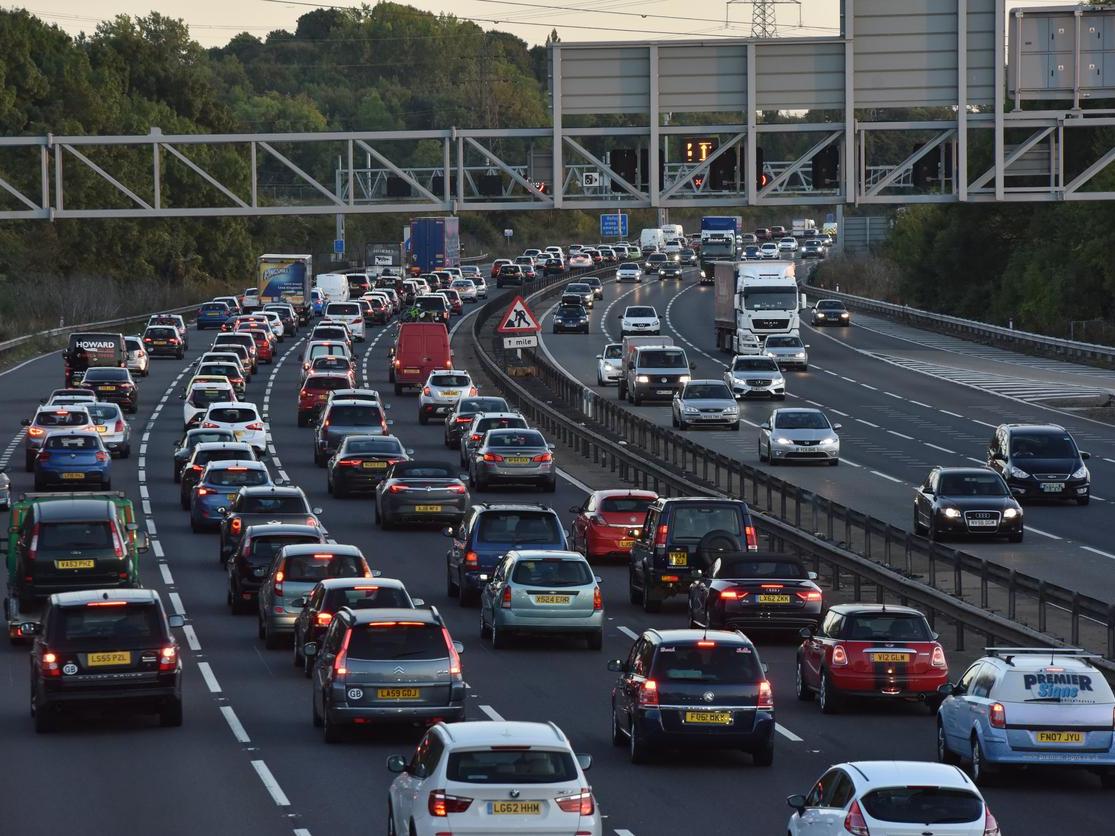Christmas 2017 travel guide: Train, airport and road closures and alterations throughout the festive period
The strikes and rail and road works that are affecting the UK this Christmas

The Christmas period is often beset by travel problems, and 2017 is no exception. With rail strikes, grounded flights and long tailbacks expected, travelling over the next week is likely to take longer than normal. Here’s everything you need to know about getting home this festive season.
Trains
A strike by rail workers on Virgin Trains on Friday will see a reduced timetable in operation, which could force more people to travel on already congested roads.
Some 260 engineering projects on the railway will also disrupt journeys.
Many of Britain’s mainline routes will be partially shut as Network Rail carries out its biggest ever Christmas investment programme.
Great Western Railway is urging passengers to complete journeys by Saturday “at the latest” as London Paddington will be closed between Christmas Eve and 27 December.
The West Coast main line will be halted between Preston and Lancaster from Christmas Eve to December 27, with buses replacing trains.
Passengers travelling between London and Glasgow during this time are advised to go via Edinburgh, adding around an hour to journeys.
Southeastern, which serves London, Kent and East Sussex, will not be able to run trains to London Bridge, Charing Cross and Cannon Street between Saturday and January 1.
Network Rail chief executive Mark Carne said: “We know that our railway is up to 50 per cent quieter than usual during the festive period so taking on and delivering these huge transformational schemes at this time of year minimises our impact on passengers.”
Airports and airlines
Earlier in the week an estimated 20,000 airline passengers had their flights to and from UK airports cancelled because of freezing fog.
On Monday night Manchester airport, Britain’s third-biggest, saw dozens of cancellations, particularly on Flybe. Services to Exeter, Southampton, Belfast, Aberdeen, Glasgow and Edinburgh were among those grounded.
Some Ryanair and easyJet flights were heavily delayed or cancelled. Loganair’s link from Manchester to Inverness was axed, with some passengers travelling by bus instead. Their estimated arrival time was 4.30am, more than seven hours late.
At Heathrow, British Airways pro-actively grounded more than 80 domestic and European flights, as well as a handful at Gatwick and London City. But during the day, with delays building, several more were cancelled, including round-trips to Rome and Warsaw.
Departures on Aer Lingus to Dublin and Shannon, Flybe to Edinburgh, Lufthansa to Frankfurt and Munich, SAS to Copenhagen and Stavanger, Eurowings to Stuttgart and KLM to Amsterdam were also cancelled.
The airline said: “We agreed in advance with Heathrow airport, air traffic control and other airlines to slightly reduce our short haul schedules.”
“We recommend that all customers check their flight is operating before travelling to the airport. We are very sorry for the disruption to our customers’ journeys at this important time of year.”
There were talks of a Ryanair pilot strike over Christmas, but this has been suspended after the airline agreed to talks. CEO Michael O’Leary said on Friday that the low-cost airline would engage with unions for the first time.
“Christmas flights are very important to our customers and we wish to remove any worry or concern that they may be disrupted by pilot industrial action next week,” he said.
“If the best way to achieve this is to talk to our pilots through a recognised union process, then we are prepared to do so.”
Roads
Inrix chief economist Dr Graham Cookson has warned of “doubled and tripled journey times” on Wednesday, Thursday and Friday, particularly on the M25 around London, and the M6 in the Midlands and North-west.
On Thursday afternoon, Inrix predicts that journeys on the M6 southbound could take five times as long as normal, with peak delays from 2.30pm.
“People are creatures of habit, and they start journeys in the afternoon,” said Dr Cookson. “Any time from Wednesday afternoon onwards is going to be bad.”
Friday afternoon and early evening is predicted to see the highest density of traffic on Britain’s roads, when the normal rush at the end of the working week is augmented by people beginning the great getaway.
Dr Cookson advises motorists: “Set off in the morning, give yourself plenty of time and have lots of Christmas tunes.”
The RAC, meanwhile, expects Christmas traffic to peak between 4pm and 8pm on Friday.
Inrix data shows that the worst non-accident traffic blackspot on the Friday before Christmas 2016 was the A303 at Stonehenge.
There were tailbacks for seven miles when congestion at the notorious bottleneck peaked shortly after 6pm on December 23 last year.
Dr Cookson said: “Drivers would be well advised to take alternative routes or avoid driving during peak times altogether.”
RAC traffic spokesman Rod Dennis added: “Things tend to get worse on the last working day before Christmas, with ‘Frantic Friday’ this year falling on the 22 December.
“We strongly urge drivers planning long journeys to avoid this day if they possibly can.”
Highways England is lifting almost 400 miles of roadworks for the festive season, from 6am on Friday 22 December until 12.01am on 2 January. It says “almost 99 per cent of motorways and strategic A roads” will be free of works.
Subscribe to Independent Premium to bookmark this article
Want to bookmark your favourite articles and stories to read or reference later? Start your Independent Premium subscription today.

Join our commenting forum
Join thought-provoking conversations, follow other Independent readers and see their replies